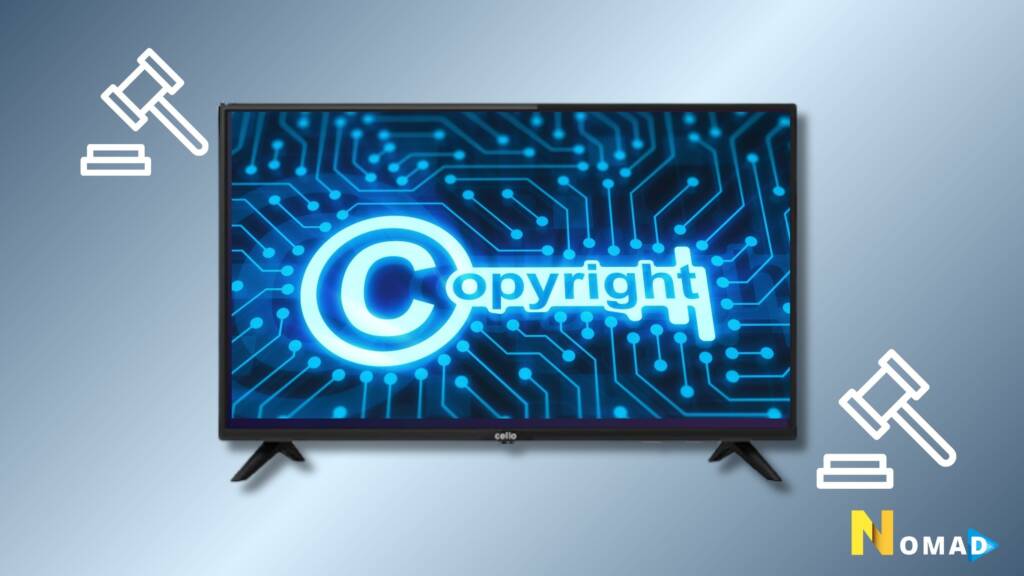Legal issues are very important in the world of IPTV because they rule things like copyright and licensing. Legal Considerations are very important for IPTV companies and users to understand in this digital age to make sure they follow the rules and protect intellectual property rights. Legal Considerations are at the forefront of IPTV operations, shaping the landscape and promoting a culture of responsibility and respect for intellectual property. They help people understand copyright laws and get the right licenses.
Table of Contents
Legal Considerations: Ensuring Compliance and Protection

Legal Considerations include many different rules and laws that affect various parts of running a business, especially in fields where intellectual property rights are fundamental. When it comes to IPTV and other forms of online content delivery, legal issues are very important to make sure that copyright laws, licensing deals, and other rules are followed.
IPTV providers need to carefully consider these legal issues to keep their companies out of possible lawsuits and to protect the rights of content authors and copyright holders. IPTV providers can build a strong base for their businesses by knowing and following Legal Considerations. This will help users and stakeholders trust and believe in them.
In this ever-changing world, it’s also important to keep up with changing Legal Considerations, since new rules and regulations are always changing how material is delivered and consumed online. Legal Considerations are basically what IPTV is all about. They help businesses be more responsible, make sure the industry grows in a way that doesn’t harm intellectual property, and protect those rights.
Copyright Laws

Legal concerns about copyright rules are very important when it comes to making and sharing content. People who make and distribute content need to know about these legal issues to follow the rules and protect their intellectual property rights. Legal Considerations say how to prevent original works from being used, copied, or distributed without permission under copyright laws.
Understanding these legal issues is important for artists who want to claim ownership of their work and stop infringement. material distributors must also look at Legal Considerations to make sure they have the right licenses and permissions to legally share copyrighted material.
Copyright laws can get you fines, injunctions, or even lawsuits if you don’t follow the Legal Considerations listed below. To keep things honest, protect intellectual property, and lower legal risks, everyone who makes or distributes content must put legal issues related to copyright rules at the top of their list of priorities.
Privacy Laws

Legal issues related to privacy rules are very important in today’s digital world, where keeping personal information safe is very important. There are rules about how businesses and organizations can gather, process, and store personal information because of privacy laws like the General Data Protection Regulation (GDPR).
These Legal Considerations say that organizations must get clear permission from people before collecting their data, and they must also take steps to protect the data they gather.
If you don’t follow these court Considerations, you could face harsh punishments like fines and court action. Because of this, companies and groups need to put Legal Considerations about privacy laws at the top of their list of priorities to stay in line with the law and protect people’s privacy rights.
By putting in place strong privacy policies, doing regular checks, and being open about how they use data, businesses can show that they are committed to following privacy laws and gaining the trust of their users and customers.
Defamation and Libel
Legal issues related to slander and slanderous speech are important to think about when communicating and writing material. Libel is the legal term for writing defamatory statements that hurt someone’s character. Defamation is the act of saying false things about someone or something that hurts their reputation.
Content creators and publishers need to know about these legal issues to stay out of trouble with the law and respect the standards of journalism. People and groups must be careful when posting information that could hurt other people’s reputations for legal reasons. This means checking facts, using reliable sources, and not making promises that can’t be backed up. If you don’t follow these legal considerations, you could face defamation lawsuits, damage to your image, and fines.
Because of this, people who make content need to put legal issues like libel and defamation at the top of their list of priorities and make sure their work is correct, fair, and doesn’t violate other people’s rights. People and businesses can help build a culture of responsible communication and keep their viewers’ trust by taking legal issues into account when they create content.
Understanding defamation
Defamation law is complicated and has many aspects, so it’s important to have a full understanding of the rules and principles that guide this area of law. Defamation is when you say or write something false about someone or something that hurts their image.
To show defamation, certain things must be present, such as the publication of false statements, the identification of the plaintiff, the communication of the false statements to a third party, and the harm to the plaintiff’s reputation as a result.
Legal Considerations are also different based on where you live, as each country and area has its defamation laws and standards. People and businesses need to be aware of these Legal Considerations so they don’t say or do things that hurt others’ reputations without meaning to, and so they can defend themselves against defamation cases if they need to.
Legal Considerations also talks about ways to defend yourself against defamation claims, like telling the truth, having authority, or making a fair comment. Understanding these Legal Considerations is important for figuring out the complicated slander law and making sure that communication and content creation follow the law.
Intellectual Property
Protecting the rights of artists and innovators requires careful legal thought about intellectual property (IP). Intellectual property includes many different kinds of creations, such as ideas, works of literature and art, designs, symbols, names, and pictures that are used in business.
Because of the law, people who make things or own intellectual property have the only rights to their creations. This means that they can make money off of them and no one else can use them without their permission. Copyright, trademark, patent, and trade secret rules are some of these legal considerations.
Each protects different types of intellectual property differently. To make sure that their intellectual property rights are protected and enforced, people and companies need to know these Legal Considerations. Legal Considerations also talks about ways to protect intellectual property rights, like lawsuits, stop and desist letters, and injunctions.
Creators and companies can protect their innovations, stay ahead in the market, and protect their investments in research and development by putting legal issues related to intellectual property at the top of their list of priorities. Understanding the legal aspects of intellectual property is also important for encouraging innovation and creativity because it gives people and businesses a reason to put time, money, and effort into creating new goods and ideas.
Contract Law
Legal issues related to contract law are very important for making sure that deals are legally binding and enforceable. Contract law spells out the rights and duties of each side in a deal and controls how those deals are made, interpreted, and carried out.
Legal rules say that for a contract to be effective, it needs to have certain parts, such as an offer, acceptance, consideration, capacity, and a legal purpose. Also, Legal Considerations say that contracts must be clear, straightforward, and freely agreed upon by everyone involved. People and companies who sign contracts need to know about these legal issues to protect their interests and avoid possible disputes.
Legal Considerations also include different kinds of contracts, like service contracts, sales contracts, employment agreements, and more. Each of these types of contracts needs careful thought of Legal Considerations that are unique to it. By putting Legal Considerations first when negotiating and writing a contract, both parties can lower their risks, make sure they follow all laws and rules and protect their rights and interests.
Legal Considerations also include remedies for breach of contract, such as fines, specific performance, and rescission, which give people who are upset about a breach of contract a way to get their problems fixed. In general, people and businesses need to know about the Legal Considerations of contract law to make deals and transactions with trust and certainty.
Terms of Service and Disclaimers
Legal issues like warnings and terms of service are very important for running an online business and talking to users. Users must follow the rules and directions in the terms of service when they use a website or platform. Disclaimers, on the other hand, limit liability and make it clear what the relationship is between the user and the provider.
Legal reasons say that warnings and terms of service must be clear, easy to find, and noticeable to users. This makes sure that they know what their rights and responsibilities are when using the platform or service. Legal Considerations also says that disclaimers and terms of service must be written in a way that follows all laws and rules.
This includes things like privacy, intellectual property rights, and responsibility limits. Legal Considerations should be taken into account when terms of service and warnings are written and used. This way, businesses can avoid legal problems and make sure users know all of their rights and responsibilities.
Legal Considerations also have ways to change terms of service and warnings when laws, rules, or business practices change. This makes sure that the terms are always followed and that the website works properly. Overall, companies need to know about and deal with Legal Considerations in terms of service and disclaimers to build trust with users, look out for their best interests, and lower legal risks in the online world.
Regulatory Compliance
Legal issues related to following regulations are very important for companies that want to stay within the law and be honest in their work. Regulatory compliance means following the rules, laws, and industry standards that control certain parts of the business, like protecting data, protecting customer rights, and following rules about the environment.
Legal concerns mean that companies need to keep up with the laws and rules that apply to their field and location, making sure they follow all the rules set by the law. Legal Considerations also say that companies need to set up rules, policies, and limits to make sure they follow the rules all the time and lower the chances of not doing so.
This means doing regular audits, teaching workers about compliance rules, and setting up ways for people to report and deal with compliance problems. Businesses can reduce legal risks, protect their image, and keep the trust of customers, regulators, and other stakeholders by putting regulatory compliance at the top of their list of Legal Considerations.
Legal Considerations also include keeping an eye on and responding to changes in regulatory requirements. This makes sure that businesses stay up to date and can adapt to changing legal landscapes. In today’s complicated regulatory environment, businesses need to understand and deal with Legal Considerations in regulatory compliance to run in an honest, responsible, and long-lasting way.
FTC guidelines
Advertising, marketing, and commerce companies, especially those that work online, need to think about the legal aspects of FTC rules. These rules and standards are made by the Federal Trade Commission (FTC) to make sure that ads are honest, clear, and don’t trick people. There are legal reasons why companies have to follow FTC rules when they make and share advertising materials, like online ads, paid content, and endorsements.
This includes being honest about any relevant connections between advertisers and endorsers, making sure that endorsements are based on the real thoughts and experiences of endorsers, and not making false or misleading claims about goods or services. Legal Considerations also says that companies need to keep up with updates and changes to FTC rules.
If they don’t, they could face big fines and damage to their image. Businesses can build trust with customers, lower their legal risks, and show they care about ethical advertising by putting Legal Considerations linked to FTC guidelines at the top of their list. Legal Considerations also include putting in place internal policies and procedures to make sure ongoing compliance with FTC rules.
For example, training employees on advertising rules, regularly checking advertising materials, and keeping records of advertising campaigns and endorsements are all examples of these. Overall, companies must understand and follow Legal Considerations regarding FTC guidelines to be honest in their marketing and stay out of regulatory trouble.
Conclusion
Finally, paying close attention to Legal Considerations is important for navigating the legal landscape in different areas of business, from copyright laws to FTC standards. Businesses must keep these things in mind to stay in compliance, protect intellectual property, and build trust with customers and other partners. Businesses can reduce legal risks, avoid expensive disputes, and ensure long-term growth in today’s changing regulatory climate by putting Legal Considerations first. Businesses can avoid legal trouble by staying educated, taking action, and being open about Legal Considerations. This also shows that they are committed to doing the right thing and being a good corporate citizen.
FAQs
1. What are Legal Considerations?
Legal Considerations refer to the various laws, regulations, and standards that businesses and individuals must adhere to in their operations to ensure compliance, protect rights, and mitigate legal risks.
2. Why are Legal Considerations important in business?
Legal Considerations are essential in business to maintain compliance with laws and regulations, protect intellectual property, mitigate legal risks, and build trust with consumers and stakeholders.
3. How can businesses stay compliant with Legal Considerations?
Businesses can stay compliant with Legal Considerations by staying informed about relevant laws and regulations, implementing policies and procedures, conducting regular audits, and seeking legal advice when necessary.
4. What are the consequences of ignoring Legal Considerations?
Ignoring Legal Considerations can lead to legal disputes, fines, penalties, damage to reputation, and other adverse consequences that can impact the financial stability and reputation of businesses.
5. Where can businesses find resources to understand Legal Considerations?
Businesses can find resources to understand Legal Considerations from legal professionals, industry associations, government agencies, and online platforms that provide guidance and information on relevant laws and regulations.


